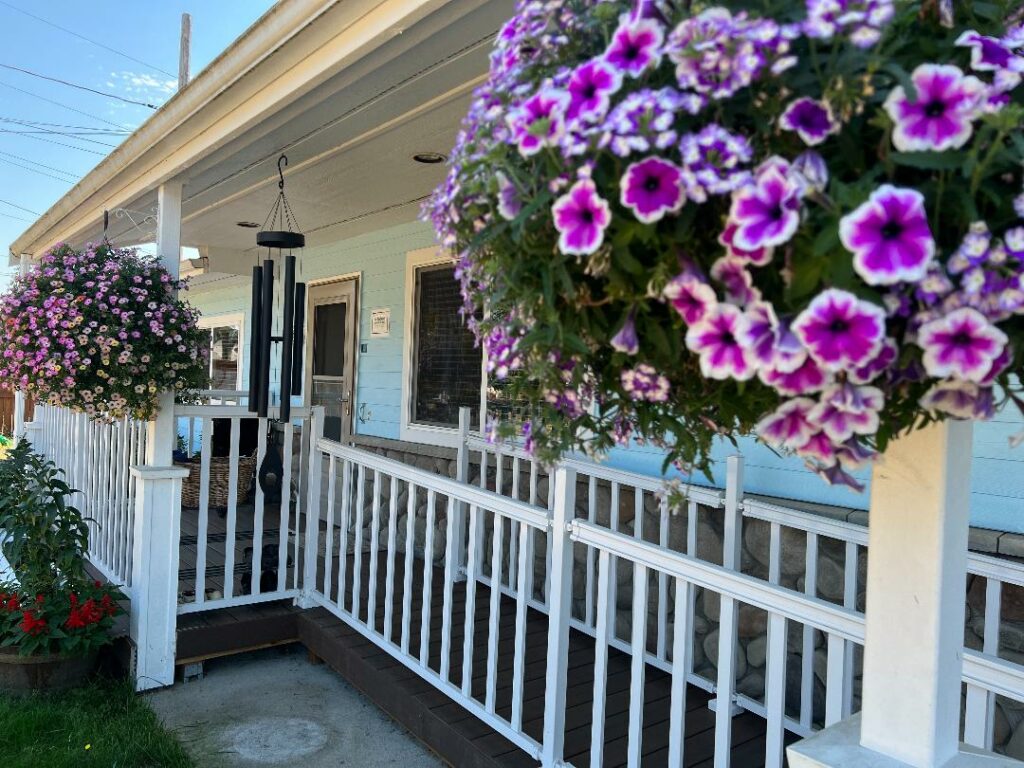Georgia Assisted Living: How to pay for, Licensing and Questions to ask
Georgia is home to some of the nation’s most beautiful countryside, mountains and sandy beaches. The cities are first-rate and modern, full of fine dining establishments. The state has a desired year-round climate making it a popular destination for our aging population. Nearly 13% of the population of Georgia is 65 years and older. That is over 1 million elderly adults who may require care at some point. Assisted living communities are a specific level of care in a community setting. In Georgia, the cost of assisted living is the least expensive in the southeast region of the United States.

Most Assisted Living Communities will provide a bedroom, restroom, meals, and assistance with care. Additionally, the size and amenities of each community can vary greatly and affect cost. Most importantly, community living allows your loved one the benefit of security and peace of mind. They may experience increased socialization, classes for health and fitness, and quality nutrition plans.

The most common universal term is assisted living. Some other common terms include: care home, residential care, convalescent home, rest home, or retirement home. The lay person sometimes groups all senior housing into the term of “nursing home.”
Assisted living communities are NOT nursing homes.

What services do these communities provide?
Each State regulates Assisted living communities and determines what care levels and staffing are allowed. In Georgia, assisted living communities provide meals, light housekeeping, and activities program. Additionally, some may also offer support such as scheduled transportation and linen service. Above all, residents move into these communities to receive assistance with activities of daily living (ADLs):
- Dressing
- Bathing
- Medication assistance and reminders
- Eating
- Toileting and incontinence management
- Transferring
Assisted living communities are there to accommodate individuals who:
- Have very limited mobility.
- Require help to take medications.
As you research senior housing in Georgia, you may come across adult care homes while you look for assisted living. There are distinct differences between Adult cares Homes and Assisted Living in the state of Georgia. Be aware as you seek housing for your loved one.
Requirements of assisted living in Georgia
Service plans
- In Georgia, a service plan for residents is important above all. It is designed for the health and safety of residents.
- The plan will outline how the facility will meet the needs of the resident, taking into consideration their care preferences, both medical and physical.
- Service plans must be updated every year or as necessary. Assessments are conducted before entry and on a yearly basis.
- A written agreement will be presented to all residents illustrating their rights as a resident of the community or facility and the cost of care and services.
Housing
- Apartment style units are NOT required in Georgia, but may be offered.
- Private and semi-private rooms may be available. There must be a minimum of 80 square feet per resident. Shared units may house up to two residents. There must be minimum one toilet and sink for every four residents, and when eight residents there must be a bathing area.
- In a multi-floor facility, each floor must accommodate handrails and doorways fit for people with mobility problems – and each floor must have accessible toilets and bathing facilities.
The fee schedule is regular monthly rent. There may be additional charges for amenities and any specific services. These community settings are terrific situations for individuals who want to live as independently as possible and direct their own care.
Staffing
- The staff to resident ratio must be maintained 24/7. One staff member per 15 residents must always be on duty throughout the day (25 throughout the evening.
- Each facility must have administrators, direct care staff, certified medical staff.
- All employees of any assisted living facility must undergo in-service training, on-going coursework, as well as continued education.
- Direct care staff must undergo continued CPR training and emergency first-aid.
- Georgia requires that anyone associated with assisted living facilities must pass a federal background check.
Grievances
- Georgia provides discrete means for any complaints and grievances for all elderly residents of assisted living facilities.
- Georgia law requires anyone who witness abuse to report it immediately.
- The Division of Healthcare Facility Regulation is where people may report a facility for any and all breach of contract.
- In the state of Georgia, residents may file complaints to the facility administrator first.

Expected Monthly Costs of Assisted Living Communities
Georgia, on a whole is less expensive than the national average. Assisted living in Georgia costs $3,500 per month. The national average is $4,500 per month. So residents of Georgia who choose assisted living save thousands of dollars a year. In comparison with neighboring states, Georgia is less expensive than all but Alabama.
Georgia has a vast number of large and small cities. The cost of assisted living fluctuates accordingly. Athens and Atlanta are the most expensive; Macon and Valdosta are on the less expensive end.
State costs
- Georgia state average: $3,500
- Athens: $3,400
- Atlanta: $3,380
- Macon: $3,500
- Columbus: $2,800
- Augusta: $3,000
- Savannah: $2,850
The cost of assisted living compared to other senior housing and care options
Assisted living in Georgia is reasonable in cost compared with other forms of care and senior housing.
- Assisted living: $3,500
- Home health: $4,400
- Nursing home: $7,100
- Home care: $4,300
How to pay for assisted living in Georgia

You want to consider your payment options for assisted living, memory care, and care homes. For these services, Medicare is NOT an option for payment.
The most common payment for these services would be out of pocket Private Pay and assessing a combination of retirement funds, personal savings, and pension payments.
Medicaid can also be an option, be sure to see if you or a loved one qualifies.
Long-Term Care insurance is also a possible option in cases of chronic conditions, be sure to see if you or a loved one qualifies.
For our Veterans and spouses of veterans, be sure to assess Veteran Aid and your eligibility for these benefits.
Medicare – NO:
- Medicare does NOT pay for Assisted Living.
- People 65 years and older and individuals with end stage renal disease are eligible for Medicare benefits, no matter their income.
- Coverage is meant for people in need of short-term care.
Private pay – YES:
- Many families pay for assisted living with private funds.
- Private pay can be a combination of retirement funds, personal savings, and pension payments.
- Family members may contribute funds to pay for assisted living or other senior housing and care.
Medicaid – MAYBE:
- Medicaid provides health coverage to millions of Americans. Eligible participants include: low-income adults, elderly adults and people with disabilities.
- Medicaid is administered by state, according to federal requirements. The program is funded jointly by each state and the federal government.
- Every state has their own individual Medicaid assistance program.
- National guidelines are in place do decipher how states must spend Medicaid money, but with allowances toward the guidelines.
- The state determines what levels of care will be covered by Medicaid, who is eligible, and how much the state will reimburse the care community.
- If you are unsure whether you qualify for Medicaid, you should apply. You may be eligible depending on your household income, family size, age, disability and other factors.
Long-term Care Insurance – MAYBE:
Long term care insurance is a great way to pay for assisted living, and planning ahead is important when considering how to pay for senior housing and care. Nearly 75% of people over the age of 65 will require long-term care and services at some point. Buying into long-term care insurance when a person is in their 50s and 60s is the most common time to do so.
- Long-term care insurance helps cover the costs of chronic medical conditions.
- Individuals and couples with the ability to pay into long-term care insurance have the advantage of a head start in allocating funds for senior care.
Veteran Aid and Assistance – MAYBE:
This benefit is available to some military veterans and surviving spouses who live in an assisted living community and those who have in-home care.
- There are specific guidelines, but a veteran may qualify for as much as $2,050 each month.
- A veteran with a sick spouse may be eligible for $1,600 per month.
- If a veteran has passed, their surviving spouse can qualify for $1,300 per month.

What additional Financial Assistance may be available in Georgia?
If you or your loved one is in need of financial assistance, there are programs and waivers available in Georgia in which you may be eligible:
The state’s Medicaid coverage for the Aged, Blind, and Disabled (ABD)
This coverage may assist with the cost of Home health aides in an assisted living facility. Let it be clear, these services are only covered under certain circumstances.
CCSP (Community Care Services waiver Program) in Georgia
The Department of Community Health works in tandem with the state’s Area Agencies of Aging to administer this waiver.This waiver is created for individuals nursing home eligible Medicaid recipients. These individuals do NOT require day and night continuous care, and they are wishing to continue receiving their medical benefits at home or in an assisted living facility.
PACE (Program of All-inclusive Care for the Elderly)
PACE is designed to provide community based coverage for all medical care for those frail seniors who are facing the possibility of institutionalization. There is a wait list for PACE, as enrollment is limited.
Resources and Links – Georgia
Georgia DHS Division of Aging Services – The Georgia Department of Human Services’ (DHS) Division of Aging Services (DAS) supports the larger goals of DHS by assisting older individuals, at-risk adults, persons with disabilities, their families, and caregivers to achieve safe, healthy, independent, and self-reliant lives.
Georgia Adult Protective Services – APS provides protection from exploitation abuse or neglect for individuals, 18 years and older with a disability and 65 and older regardless of a disability, living in the community who, because of physical or mental limitations, are unable to act in their best interest.
Georgia SHIP – Help Medicare and Medicaid beneficiaries sort through the complexities of Medicare and related-health insurance concerns.
Georgia Senior Legal Aid – Statewide legal services program for seniors sixty and over. Attorneys provide advice, brief services and referrals.
Capitol Ombudsman Program – A principal function of the Ombudsman Program is to investigate and work to resolve complaints made by or on behalf of long-term care residents.
Eldercare Locator This is a great resource to search for specific care in specific counties and cities. This database is a nationwide resource that connects older Americans and their caregivers with trustworthy local support resources. Connect with services such as meals, home care or transportation, or a caregiver education or respite from caregiving responsibilities. The Eldercare Locator is a public service of the Administration on Aging (AoA), an agency of the U.S. Administration for Community Living.
Medicare provides a search feature to find & compare providers near you, most senior housing and care providers are included on CareAvailability.com. Find & compare plans in your area. Determine if you qualify for premium savings
Medicaid offers information on how to apply for Medicaid, eligibility criteria, links to local state offices, and additional resources
The Alzheimer’s Association is the leading voluntary health organization in Alzheimer’s care, support, and research. Whether you are living with Alzheimer’s or caring for someone with the disease, information and resources are available.
Questions to Ask
Finding a senior living community can be overwhelming. Here are some tips on things to be observant of:
- Make sure the facility is clean and well maintained. You can tell a lot about the operation by noting what is clean and maintained. Are doorknobs loose or damaged? Do you see any frayed carpet or trip hazards?
- Visit during lunch hour to observe what the residents are eating. Ask questions about the nutrition program. Is there diversity in meals, healthy fruits and vegetables served at all meals, drink options?
- Speak to residents and/or family members to learn their perspective.
- Ask about staff and resident engagement. Get a feel for how staff interact with residents.
- Ask about the life enrichment programs. Activities are crucial when it comes to quality of life and play a key role in care for older adults.
- And finally (along with a plethora of more things to consider), get to know the leadership in the building. If you feel good around the Executive Director, Head Nurse, Lead Activities Director and even the Chef or Janitor, it is a good sign you can trust them with the care of your loved one.